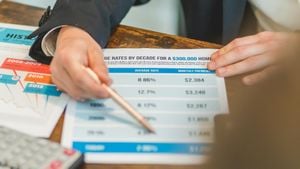Jimmy Lai, the prominent Hong Kong media tycoon and founder of the now-defunct pro-democracy newspaper Apple Daily, began his testimony on Wednesday at his landmark national security trial, which many see as pivotal for the future of free press and dissenting voices in the city. The 77-year-old is facing serious charges, including collusion with foreign forces and conspiracy to publish seditious material, which could result in life imprisonment if he is convicted.
Lai has not been heard from since his arrest nearly four years ago, during which he was instrumental during the 2019 protests advocating for democratic freedoms. Dressed modestly, he entered the courtroom to greet supporters, including his family and Cardinal Joseph Zen, the well-known Catholic figure and supporter of democratic rights. His testimony marks the first time Lai has spoken publicly about his views on Hong Kong's political situation since his incarceration.
During his defense, Lai emphasized the motives behind his media work. He stated, "The more information you have, the more you’re in the know, the more you are free." He elaborated on how Apple Daily sought to uphold the core values of Hong Kong people's rights: freedom of speech, the rule of law, and the pursuit of democracy. Despite the harsh climate for dissent, he declared his opposition to violence during the protests and distanced himself from any ideas advocating for Hong Kong’s or Taiwan's independence, labeling the notion “too crazy.”
The prosecution has painted Lai as orchestrator of international efforts to undermine Chinese authority, pointing to his meetings with high-profile political figures such as former U.S. Vice President Mike Pence and Secretary of State Mike Pompeo. While affirming these meetings occurred, Lai clarified he hadn’t solicited direct actions against the Chinese government but rather sought verbal support for Hong Kong’s freedom. He expressed to Pence, "It's beyond me" to ask for any U.S. government interventions.
This trial stands out as one of the most high-profile cases following the imposition of the national security law by Beijing—which has drastically reshaped the political fabric of Hong Kong since its enactment. Critics argue this law has effectively quashed freedoms and eroded the autonomy promised to Hong Kong under the handover agreement from Britain. Rights groups and international observers have condemned Lai's prosecution as politically motivated and indicative of broader repression.
The timing of Lai’s testimony is significant. Just days prior, several other influential pro-democracy activists were handed lengthy prison sentences under the same national security law, deepening concerns over the clampdown on dissent. Observers from various countries, including diplomats from the U.S., UK, and other nations, gathered at the trial, reflecting international scrutiny and growing alarm over Hong Kong’s human rights situation.
Lai’s defense lawyer, Steven Kwan, pushed back on the prosecution’s allegations, emphasizing his client's commitment to journalistic integrity and democratic ideals. He reiterated how Lai's pursuits through the media were aimed at strengthening society’s democratic values rather than facilitating foreign interference. Lai’s son, Sebastien, has been vocal about his father’s treatment, labeling it as “inhumane” and calling for international support and action.
Despite the serious allegations, Lai has maintained his not guilty plea throughout the process. His case is seen as not just relevant for his personal freedom, but as emblematic of the fight for free expression and the rule of law, values increasingly under threat not only in Hong Kong but much of the world. Lai’s plight has drawn the attention of Western leaders, with figures such as UK Prime Minister Keir Starmer and U.S. officials calling for his release, arguing his detainment is symptomatic of Hong Kong’s deteriorated civil liberties.
Before the trial commenced, Lai had already served significant time under harsh conditions, raising eyebrows about his health and the general treatment of political prisoners. Reports surfaced about his solitary confinement and the limited access he has to the outside world, which has exacerbated fears among supporters and human rights advocates.
Each day of the trial has continued to draw considerable attention, with public support evident as numerous individuals lined up to witness the proceedings, hoping to show solidarity for the media mogul. They believe his story captures the essence of what is transpiring within Hong Kong—a battle for the heart and soul of the city’s identity.
International human rights organizations like Amnesty International have been at the forefront, championing Lai's cause. They have declared him to be “a prisoner of conscience” and urged immediate action from governments and advocacy groups to review the cases of those imprisoned under the national security law. Their campaigns seek to remind the world of the importance of protecting freedoms of speech and press, not only for Lai but for the future of Hong Kong.
While Lai’s future remains uncertain, what is clear is the impact his trial has on setting the narrative of resistance and resilience against the overwhelming pressure from Beijing. His voice continues to echo the sentiments of many who yearn for democracy and freedom within this divided society.
A landmark decision on Lai's fate will not only influence the media’s future but also shape the global perception of human rights within the territory. Regardless of the outcome, Lai's testimony has illuminated the struggles faced by individuals fighting for freedom, challenging the world to respond and recognize the value of press freedom and human rights.



